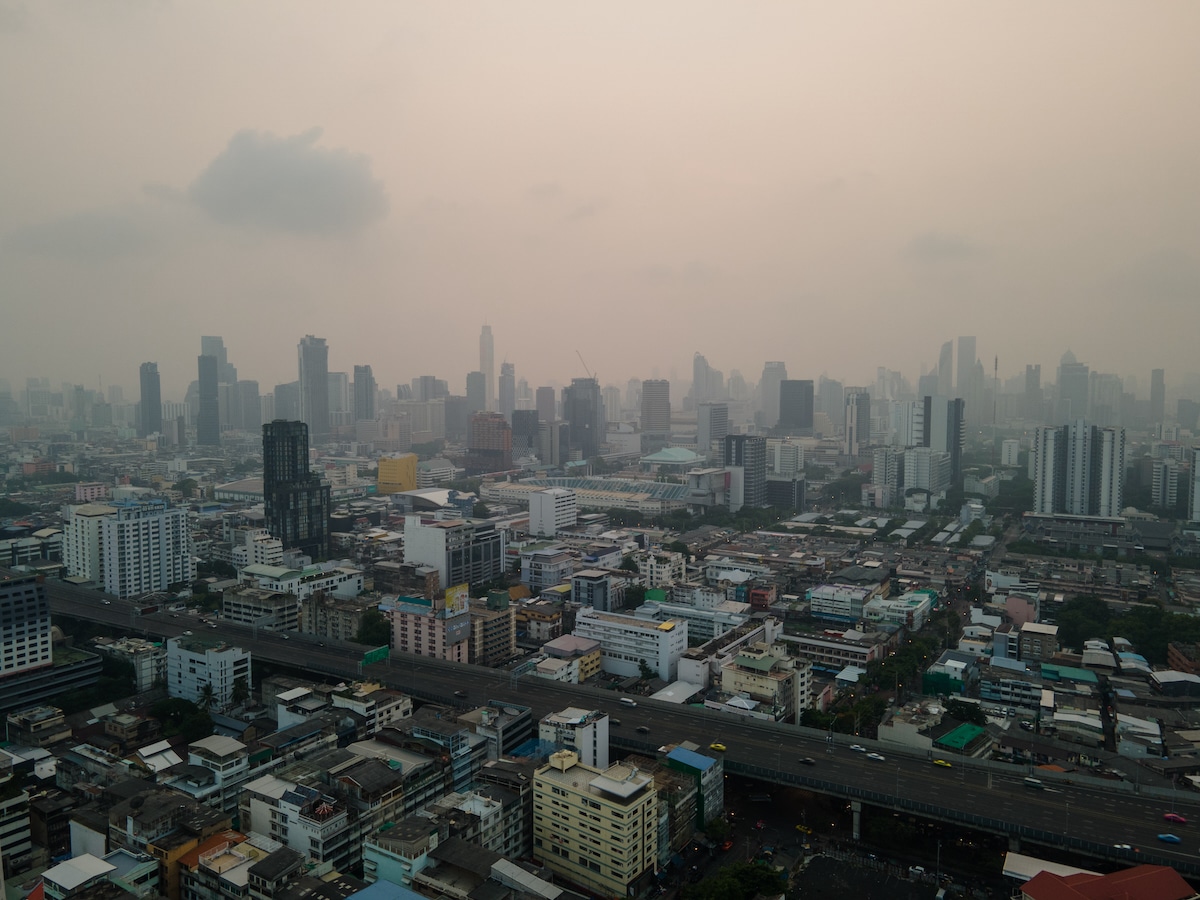Bangkok City Workers Ordered to Work From Home to Avoid Toxic Smog

 Why you can trust us
Why you can trust us
Founded in 2005 as an Ohio-based environmental newspaper, EcoWatch is a digital platform dedicated to publishing quality, science-based content on environmental issues, causes, and solutions.
Government employees in Bangkok have been ordered to work from home for the next two days in order to avoid a thick layer of noxious smog covering the city.
On Thursday, authorities warned that air pollution levels in Thailand’s capital and neighboring provinces had reached unhealthy levels, reported Reuters. Non-government employees have been urged to stay home as well.
Governor of Bangkok Chadchart Sittipunt said the mandatory work-from-home days would affect more than 60,000 people on Thursday and Friday, according to AFP.
Authorities asked for employers’ cooperation in helping workers avoid the toxic pollution until it improves on Friday.
“I would like to ask for cooperation from the [Bangkok Metropolitan Administration] network of about 151 companies and organizations, both government offices and the private sector,” Sittipunt said in a statement, as AFP reported.
On Thursday morning, Bangkok was ranked in the top 10 most polluted cities globally by Swiss air quality tracker IQAir.
According to the IQAir website, levels of PM2.5 particles — considered the most dangerous and small enough to enter the bloodstream — were 15 times higher than the recommended guidelines set by the World Health Organization.
Bangkok’s air quality issues come from industrial pollution, agricultural burning and busy traffic.
Prime Minister of Thailand Srettha Thavisin said crop burning was the biggest factor in the jump in pollution, adding that about 25 percent of it came from vehicles, reported Reuters.
Last month, the Department of Pollution Control said Bangkok’s annual smog season had officially begun, according to The Associated Press. Air quality in the region has been getting worse since late 2023. In northern provinces like Chiang Mai, a period of high microscopic dust levels typically starts in late February, when airborne particles build up due to a combination of an inversion layer in the atmosphere and dry weather.
Many residents of Bangkok are not able to work from home, however.
“If I stay home, then I will starve,” 57-year-old motorcycle taxi driver Jarukit Singkomron, who is allergic to the pollution, told AFP. “People like me have to go out to make ends meet.”
Subsidies have been offered to farmers by the Thai government to stop burning, as well as less expensive electric vehicle (EV) packages, Reuters reported. A clean air act is under consideration by lawmakers to reduce pollution from transportation, agriculture and industry.
The prime minister recommended that the government consider limiting fossil fuel-powered vehicles in Bangkok and pointed out that Thailand’s EV policy was an important component of efforts to reduce pollution now and in the future.
“We have a lot of problems with pollution at the moment, so we have to act immediately to reduce the effects on people,” Srettha said, as reported by AFP.
Subscribe to get exclusive updates in our daily newsletter!
By signing up, you agree to the Terms of Use and Privacy Policy & to receive electronic communications from EcoWatch Media Group, which may include marketing promotions, advertisements and sponsored content.

 233k
233k  41k
41k  Subscribe
Subscribe 




